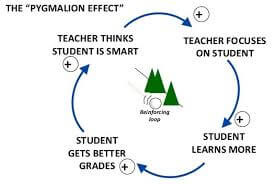About the author: David Quan, one of thirty recipients worldwide of a Cambridge Trust Scholarship, was one of our state’s top performing students, earning a near-perfect ATAR and International Baccalaureate (IB) score. An Order of Australia Association Student Citizenship Awards recipient, David has tutored, coached and mentored hundreds of Primary and Secondary students over the last half-decade, especially through his active volunteering and leadership roles for school, basketball, music, public speaking, social enterprise and community service.
Advanced Education SA is pleased to partner with David before he commences his undergraduate studies at the world-renowned University of Cambridge in late September. We hope that his fresh insights and perspective may offer all our students further inspiration to access excellence and advance their education. For private and group tuition enquiries, please visit our website at https://advancededucation.com.au/
Talent and Potential
For almost every industry or profession, talent seems paramount. But the ability to identify and cultivate talent is something that has troubled even the best of us. Look no further than Walt Disney’s firing due to an apparent lack of imagination, or how 12 major publishers rejected the Harry Potter manuscript. Occasionally though, the opposite happens: potential is recognized in advance. Good news! Jerry West’s decision to draft the late great Kobe Bryant straight out of high school serves as an iconic example. So, what does it take to find the diamond in the rough? Experience, intuition, science or something else?
Many people assume that information is key: the more we know, the more comprehensive our judgement. This explains why job applications involve rigorous assessments of CVs, references and interviews. It also justifies why standardized tests, aptitude assessments and teachers’ comments play a significant role in College admissions, or for the selection of the Year 7 ‘gifted and talented’ Maths group. There are merits to this accumulation of knowledge, but we are still prone to misjudgements. What best predicts potential then? It turns out, the answer may lie in this magical intelligence test.
The Magical Intelligence Test: Finding “Bloomers”
In a study conducted by Harvard psychologist Robert Rosenthal, students in a California school were given that ‘magical’ IQ assessment. 20% of students showed remarkable intellectual potential so were subsequently determined to be “Bloomers”. The teachers were provided with this knowledge. Tracking the students’ academic journey in the subsequent years revealed that the “Bloomers” performed much better than their “Normal” classmates. In a cognitive ability test a couple years later, the former even gained twelve IQ points whilst the later only eight. As expected, the “Bloomers” learnt at a faster rate – IQ appears to be a strong, successful predictor of potential. This makes sense, right?
Well, please do forgive me. Here is what I forgot to mention. Unbeknownst to the teachers, the 20% of students who were determined as “Bloomers” were actually chosen at random. The “Bloomers”, on average, did not actually get tested with a higher IQ compared with the control group, the “Normal” students. Rosenthal’s research was surreptitiously designed to find out whether the teachers’ belief in their students’ potential could have a tangible impact on educational achievements.
Why Was It So Effective?
Needless to say, the results reveal interesting insights into human behaviour. The most logical explanation for the statistically significant disparities in academic achievements, even though the “Bloomers” were actually chosen at random, concerns the differences in teachers’ perceptions. The teachers’ expectations may have initiated a virtuous cycle. For example, when “Bloomers” made mistakes, instead of assuming that they lacked talent, the teachers may have been more likely, even subconsciously, to be patient and supportive. Every interaction thus became a safe environment and opportunity for engagement, teaching and learning. In turn, the “Bloomers” benefitted from the sympathetic care and gained greater confidence. This enabled and motivated them to fulfil the higher expectations, ultimately improving performance. It is a self-fulfilling prophecy! To understand this effect, just think back to that one person who absolutely believed in you. How empowering!
This phenomenon in which expectations affect performance is known as The Pygmalion Effect. Research by psychologists Lee Jussim and Kent Harber indicates that “self-fulfilling prophecies in the classroom are real”. What is more, variations of Rosenthal’s experiment enabled Professor Dov Eden to reliably predict the most resilient cadets in the Israel Defense Forces. Brian McNatt, a management researcher, even implemented the experiment across different industries to measure employees’ productivity. The result? Indeed, the randomly selected “Bloomers” performed better over time.
Educational Implications
As parents, caregivers, educators, teachers, tutors, mentors, coaches, leaders and role models, we should therefore carefully consider our thoughts in every interaction. Just as encouraging, positive and genuine beliefs of people as capable beings may create a virtuous cycle, the opposite may also induce a dreadful vicious downward spiral.
Although we could neither guarantee our ability to successfully choose ‘the diamond in the rough’ nor control all the variables that affect outcomes over time, we could all choose to internalize the belief that people – particularly children – can improve. Our greatest educators, who are rightfully credited with a remarkable eye for potential, simply believe that everybody is talented, especially after they are empowered to realize it over time. You definitely know who that person is for you.
So, try this magical ‘trick’: naturally see people as “Bloomers” and then just watch them BLOOM!



0 Comments